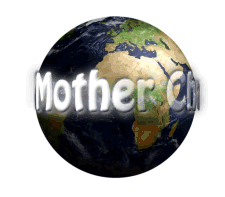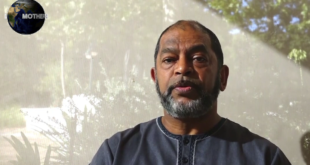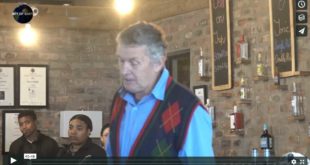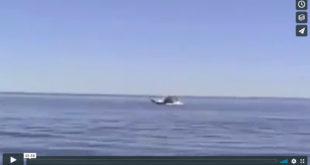As it says in the title this video sees Steve Mecinski talk to us about conservation and other subjects including what he does to prevent poaching. There are a big team of poachers that make patrols around the park to check for poachers and even the use of drones to help rangers prevent poaching.
Wildlife conservation is the practice of protecting animal species and their habitats. It is achieved partially through legislation such as the Endangered Species Act, the establishment and protection of public lands, and responsible public practices that conserve wild animal populations.
The introduction of invasive species from far away continents introduced by humans can wreak havoc on native plant and animal species. The proliferation of chemicals in the environment including pesticides, PCBs, and oil spills, has the potential to poison wild animals and inhibit their reproductive capacities. Wild animal populations can also be threatened by poaching, wildlife trafficking, and military weapons testing.
Mr Mecinski has a special obligation to rhino and the protection of that species. He does lots of different things to protect the species itself with more things like patrols. He tells us in the video about the graphic realities of rhino poaching and how the rhino often die in their own blood or worse they are left damaged and disfigured in their natural environment. Steve tells us how laborious the task of prosecuting the poachers can be with things like the collection of witness statements and the gathering of evidence of the crime and trespassing and more. Moreover you can get tougher sentences for the illegal purchasing of firearms and so often he tries to catch the poachers for that crime instead. We learn about how some poachers are released on bail which is disastrous if they continue their activities while on bail so the system can clearly be flawed.
We ask the question of whether you are allowed to shoot the poachers if your life is in imminent danger so that means that when the poachers are caught if they point firearms at the rangers then they can be shot legally. There must be a life in imminent danger in order to shoot them legally. The shoot to kill policy can be breached however and that can end in a life sentence for the shooter. We hear about whether Steve Mecinski would approve of death sentencing for poachers. It may seem a little harsh but then you must think of the animals and how their environment can be damaged there must be severe punishment.
Steve tells us that he is all for things like incentives to discourage the poaching so things like the rangers salary he believes should be increased along with increasing the staff salary of all those who work and live on the plots of land. The military are extremely organised and Steve tells us how they may be able to do a more effective job of ranging the vast masses of land in the game reserves. Steve tells us about how modern technology can help the job of rangers that are preventing the killing of the beautiful animals by the use of drones to monitor large chunks of land.
We find out about what Steve thinks about a money-less society and completely irradiating the use of money altogether. There used to be very successful societies in previous generations that lived purely on an exchange basis. This is when people exchanged goods and services for things instead of money itself. Steve also talks about ethical ways of hunting.
Steve tells us about his recent year spent I south East Asia where he struggled greatly to adapt to the culture of killing tings for personal consumption. Even if you just look on YouTube you can see videos from south East Asia where they catch and kill animals live.
Since the start of the poaching epidemic in 2008 South Africa has lost over 7 000 rhinos a figure that, despite so much effort, increases daily. Coupled with the increasing poaching figure comes the question – why after all this are we still losing more rhino than ever? Sadly, few people realise the challenges facing those on the frontlines thousands of kilometres to patrol with little to no idea of where the poachers plan to hit next. At this stage the poachers have the upper hand they know when, they know how, and if need be they’ll just come back another day or hit a softer target.
This video is very interesting and gives you first-hand information from someone who has real life experience from certain issues.
Links: https://www.conservation.org/global/ci_south_africa/Pages/conservation-south-africa.aspx, https://nhes.org/wildlife-conservation/ , https://www.youtube.com/watch?v=uMhgcuqblqA , http://www.stoprhinopoaching.com/ ,
http://www.stoprhinopoaching.com/
By Alex Mitchison
 Mother Channel Environmental, climate change news and media.
Mother Channel Environmental, climate change news and media.



